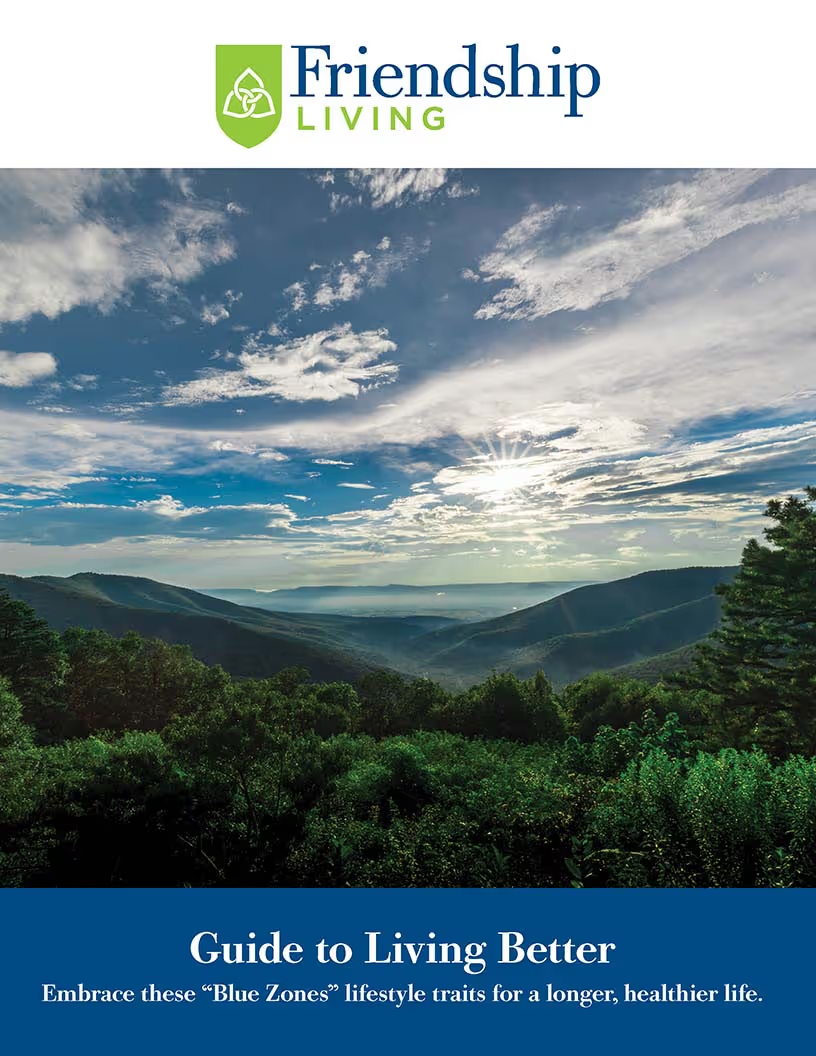-394.jpeg)
Healthy Aging Tips: Blue Zones and Your Body
-394.jpeg)
One of the most important aspects of healthy aging is physical wellness. The Blue Zones®, five regions in the world where people seem to live the longest, certainly exemplify some best wellness practices. While these regions are geographically dispersed – Sardinia, Italy; the Greek island of Ikaria; Loma Linda, California; Nicoya Peninsula, Costa Rica and Okinawa, Japan – the residents share lifestyle traits that researchers believe help them to live healthier, happier, and longer lives. Here’s how you can apply Blue Zones tips for physical wellness in your life.
Health Aging in Blue Zones®
The common lifestyle traits among residents in the Blue Zones are known as The Power 9®. We’ve described each of the traits in our previous blog, 9 Secrets to Healthy Aging from the Blue Zones, but four of the traits specifically relate to physical wellness:
● Move Naturally – Keep moving daily and avoid being sedentary.
● Hara Hachi Bu – Stop eating before you feel full, otherwise known as the 80% rule.
● Plant Slant – Eat a mostly plant-based diet.
● Wine @ 5 – Drink alcohol regularly, but always in moderation.
Blue Zones Physical Wellness Tips
Eating well and staying active are even more important as you age, but they don’t have to be complicated to achieve. In fact, residents in the Blue Zones make it seem surprisingly easy with tips that include:
Move Naturally – Blue Zones residents naturally stay active in daily life because they don’t have many of the same conveniences for home and yard work as we do, so they do it themselves. The National Institute on Aging recommends at least 150 minutes of moderate-intensity physical activity throughout the week in sessions of at least 10 minutes duration. And following a Blue Zones’ approach, you could achieve that in the same way by gardening, mowing the lawn, parking further away from the store, and/or playing with the dog; anything that can raise your heart rate and limit the amount of time you’re sedentary counts.
Hara Hachi Bu - This 2,500-year-old Confucian mantra is repeated by Okinawans before meals to remind them to stop eating when their stomachs are 80 percent full. The Blue Zones’ researchers believe that 20 percent gap between not being hungry and feeling full could be the difference between losing weight or gaining it. You can follow this practice as well by eating slowly, and once you’ve eaten half of what you normally eat, take a 10-minute break to assess whether you should eat more or stop. This gives your stomach time to communicate with your brain just how full it actually is. Residents in Blue Zones also eat their smallest meal in the late afternoon or early evening then don’t eat any more the rest of the day.
Plant Slant – Blue Zones’ diets primarily consist of beans, including fava, black, soy, and lentils. Residents do eat meat, however only a handful of times per month and then it’s mostly pork. This is often called the “Mediterranean diet,” and these tips can help you get started with it:
● Eat 7 to 10 servings a day of fruit and vegetables.
● Switch to whole-grain bread, cereal, and pasta.
● Use olive oil as a replacement for butter in cooking and on bread.
● Eat fish like fresh or water-packed tuna, salmon, trout, mackerel, or herring twice a week; grill it instead of frying.
● Substitute fish, poultry, or beans for meat in most cases. When eating meat make sure it's lean and in small portions.
● Eat low-fat Greek or plain yogurt and small amounts of a variety of cheeses.
● Use herbs and spices to boost flavor instead of salt.
Wine @ 5 – While the time doesn’t necessarily have to be exact, residents in all Blue Zones (except Seventh Day Adventists) drink alcohol regularly, in moderation, with friends and/or with food. But keep in mind there’s a fine line between moderation and excessive drinking which certainly negates any health benefits of red wine. So, limit yourself to one to two glasses a day.
Contact us today to schedule your visit by calling 540.777.7103!

